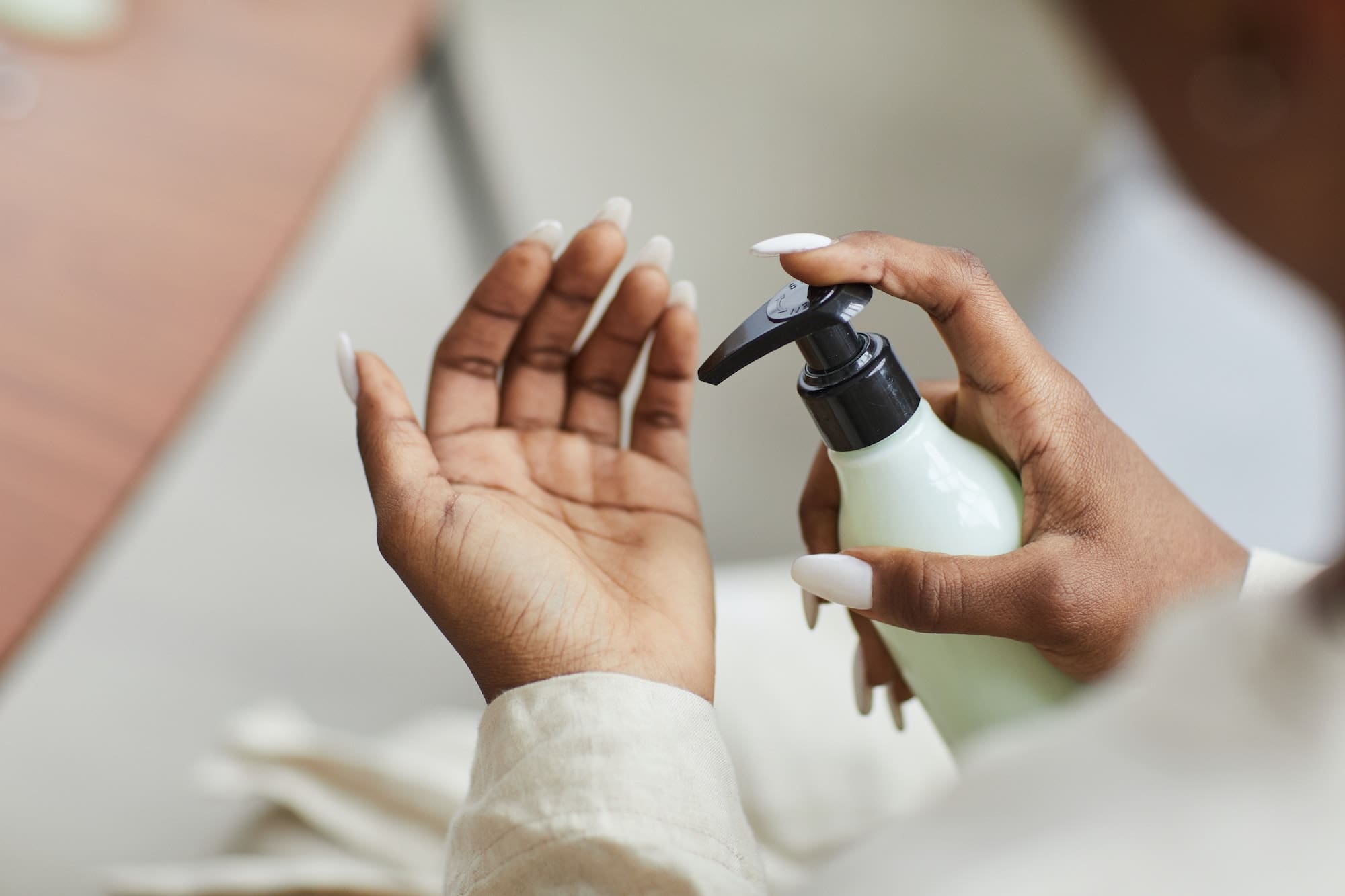5 Tips on Keeping your Hands Moisturised
Hot weather can be rough on your skin, especially on your hands. Sunburns, blisters and peeling are all common symptoms of the Caribbean climate. But don’t worry! With the right preventative measures and products, you can keep your hands soft and smooth even in the hottest of climates.
Here are five tips that can guide you:
- Moisturise Frequently
- Why Moisturise your Hands?
Moisturisers are typically made up of a combination of oils, emulsifiers (which help the oils mix with water), and humectants (ingredients that help retain moisture). When applied to the skin, these ingredients work together to form a protective barrier that helps keep moisture in and irritants out. This barrier helps to prevent further damage from soaps or other products that can cause dryness or irritation. Additionally, regular moisturising can also help reduce wrinkles and fine lines on the hands by adding moisture back into the skin.
- How Often Should you Moisturise?
It’s important to find a moisturiser that suits your specific needs as everyone’s skin type is different. Once you’ve found one that works for you, it’s usually recommended that you apply it 2 – 3 times per day to maintain soft and healthy skin, and especially after washing your hands each time. It’s also important not to rely on hand creams alone, but to try using natural ingredients like avocado oil or coconut oil which are full of vitamins that nourish the skin.
- Use Hand Creams With Moisturising Ingredients
Hand creams with ingredients like shea butter, cocoa butter, olive oil, and aloe vera can help nourish the skin and prevent dryness. Look for creams that contain Sun Protection Factor (SPF) if possible to protect from sun damage as well. Apply the cream on a regular basis throughout the day, especially after washing your hands to ensure that maximum hydration levels are achieved.
- Wear Gloves when Appropriate
- The Benefits of Wearing Gloves
- It’s important to note that not all gloves are created equal when it comes to keeping moisture locked in. Cotton gloves are highly effective at maintaining moisture levels because they are breathable and allow for ventilation. Similarly, rubber gloves and latex gloves should be avoided because they trap heat and can cause irritation, redness, and itching after prolonged use.
- In addition to protecting your skin from drying out, wearing gloves while washing clothes or dishes can also help protect against other irritants like perfumes that may be present in powdered soaps, detergents, or dishwashing liquids. This is especially helpful for those who have sensitive skin, as these ingredients can cause inflammation or exacerbate existing conditions; such as eczema or psoriasis.
- Wear Protective Gloves when Working
Wearing gloves is key when working outdoors or with any kind of chemicals, as they will provide an extra layer of protection against harsh elements like heat, sun damage, dirt and dust. When selecting gloves, look for materials that will keep your hands cool while also providing protection (e.g., cotton).
- Exfoliate Regularly
- Why Exfoliate?
Exfoliation is the process of removing dead skin cells from your skin’s surface. It’s especially important in a dry climate like the Caribbean because it helps prevent dead cells from accumulating on your hands, which will leave them feeling dry and uncomfortable. Exfoliation also helps to stimulate cell turnover, which aids in keeping your skin looking smooth and healthy.
- How to Exfoliate Properly
When exfoliating, you want to use gentle circular motions with a soft brush or cloth so as not to irritate or damage your skin.
- Start by wetting your hands with warm water, before applying a small amount of exfoliating scrub or cleanser directly onto your palms.
- Gently massage the scrub into your hands using slow, circular motions until all of the dead skin has been removed.
- Rinse away any excess product with warm water before patting your hands dry with a clean towel.
- Once finished, apply a light moisturiser to help lock in the moisture and protect against further drying out of the skin.
- Use Gentle Soaps
Harsh soaps strip away natural oils and can leave your skin feeling tight and dry after washing them off. Opt for gentle liquid soaps instead that are specifically formulated for sensitive skin, or look for ones that contain natural oils like coconut oil or jojoba oil which help retain moisture while cleansing the skin at the same time.
- The Benefits of Gentle Soap
- Gentle soap helps to keep your hands moisturised because it doesn’t strip away all the natural oils from your skin. Harsh soaps contain ingredients that can irritate and dry out your skin, which can make matters worse if you already have dry patches or eczema on your hands. Gentle soap contains milder ingredients that help cleanse without stripping away too much oil from the top layer of your skin.
- It is often formulated with special ingredients like essential oils or moisturising agents; like glycerin or shea butter that helps to provide extra hydration to the skin. These ingredients are absorbed into the pores when you wash your hands. This will help to keep them feeling soft and supple throughout the day, even after exposure to harsh sunlight or chlorine-filled swimming pools.
- Choosing the Right Soap
When selecting a gentle soap for moisturising your hands, it’s important to choose one that has been specifically designed for sensitive skin types. Avoid any soaps with strong fragrances as these can irritate delicate areas and worsen any existing conditions. Instead, opt for mild formulas that are free from artificial preservatives and other potentially irritating chemicals. Furthermore, look for organic ingredients like coconut oil or shea butter that will nourish and protect your skin while still providing a thorough cleanse. When selecting a gentle soap for moisturising your hands, it’s important to choose one that has been specifically designed for sensitive skin types.


- Drink Plenty of Water
- Why Drink Water?
Your skin is composed of cells that contain a great deal of water. When we don’t drink enough water, these cells can become dry and flaky, leading to dull-looking skin that lacks elasticity. To prevent this from happening, it is important to stay hydrated by drinking enough water throughout the day. Not only does this help to keep the skin on your face hydrated, but it also helps to nurture the skin on your hands as well.
- How Much Water?
Drinking enough water each day is key for maintaining healthy looking skin all over your body; your hands included! Staying hydrated helps keep our cells functioning properly by flushing out toxins from the body, which otherwise could lead to dryness or irritation on our skin’s surface. To get all of the benefits of water for your skin, aim to consume approximately 8 – 10 glasses a day (or about 2 – 3 litres). You may need more if you’re going out into direct sunlight or engaging in physical activities like swimming or snorkelling etc. Keeping a reusable bottle with you at all times is also a great way to ensure that your skin stays hydrated.
Keeping your hands soft and moisturised is an important part of taking care of yourself and should not be overlooked. By following these simple tips, you’ll be able to maintain healthy looking hands no matter what. Remember to stay hydrated both inside and out and don’t forget to apply moisturiser regularly! Repeating these steps on a daily basis, will gradually bring you closer towards your goal of achieving healthier looking hands and skin overall!









Leave feedback about this